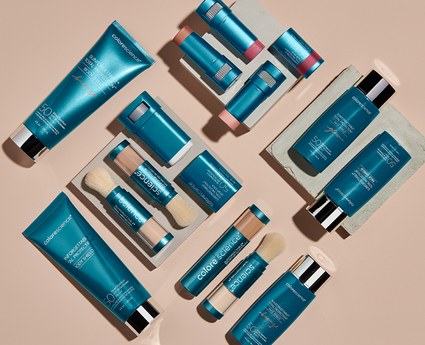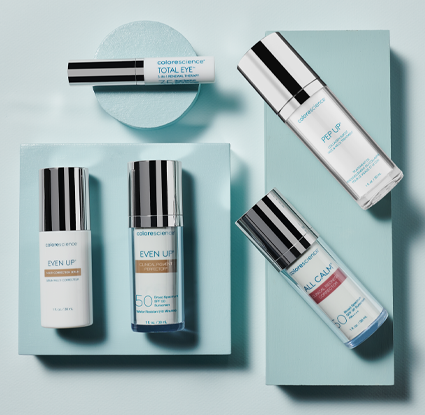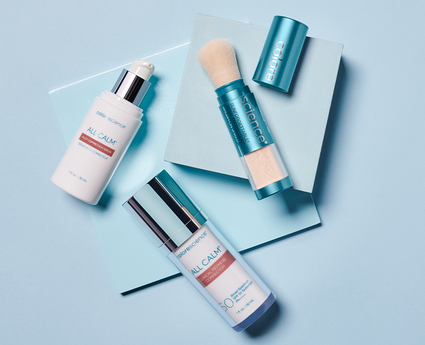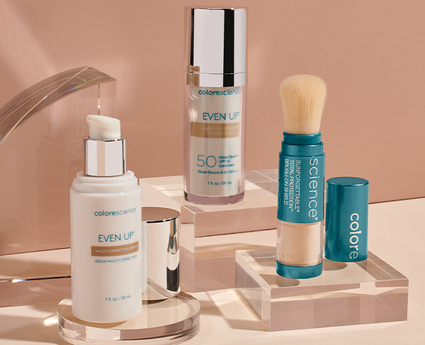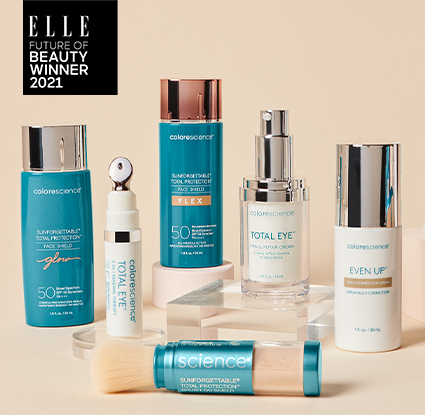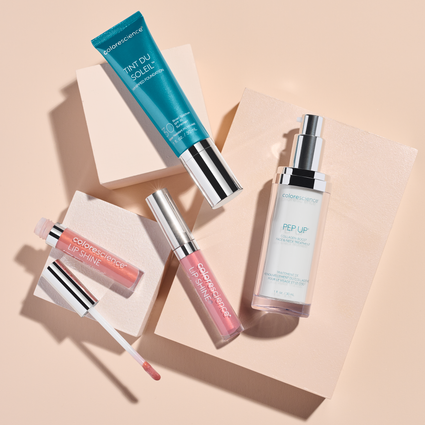Coconut Oil for Tanning (Why It's a Bad Idea)
If you’re reaching for coconut oil before heading out to spend time in the sun, stop right there. Coconut oil should not be used as a standalone sunscreen in any situation. Why? Let’s delve in.
The Push Towards Natural Skin Care
There’s nothing that gets us excited quite like the push towards natural skin care that’s been happening over the last few years. For decades, we’ve talked about ensuring that what goes in our bodies is healthy, including natural foods, homeopathic medicines, and proper hydration—but only recently have we started talking about making sure what goes on our bodies — sunscreens, lotions, and hydrating skincare products for example, are healthy, too.

People are now more informed than ever about the products they’re using on their bodies. We’re paying more attention to those hard-to-read chemicals listed on the back of our moisturizers and choosing natural products over chemical.
A quick peek on Pinterest reveals the plethora of information that’s now being shared about natural skin and body care, from sulfate free shampoos to homemade face masks to chemical free sunscreen.
And at Colorescience, we think that’s fantastic. Our philosophy is based on improving lives with our health-forward formulas made of pure, natural minerals. We’re totally transparent with exactly what goes into our skincare, so that you can arm yourself with the knowledge that you’re doing something good for your body.
Looking for all-natural sun protection?
Protect your skin using chemical-free, all-mineral sunscreen from Colorescience!
SHOP NOWWhat we don’t love, however, is when misinformation is disguised as fact and passed around to millions of people who, fully intending to do something great for their bodies, do something bad. We see this a lot when it comes to skin and body care trends. A natural product is presented as a “cure-all” and prescribed for every ailment, from acne to wrinkles, and everything in between.
Perhaps the biggest current culprit of this fallacy is coconut oil. Dry skin? Use coconut oil. Hair lost its shine? Use coconut oil. Looking for a natural alternative to sunscreen? Why not try coconut oil?! While it’s true that coconut oil is an excellent moisturizer and is naturally antibacterial and antifungal, it’s not the wonder substance that lifestyle gurus claim. And it’s definitely not a natural alternative to sunscreen. Read on to learn all about why using coconut oil as sunscreen isn’t just ineffective—it’s downright dangerous.
What is Sunscreen?
Before diving into why coconut oil isn’t sunscreen, let’s talk about what sunscreen actually is. The sun puts off two highly dangerous types of UV (Ultraviolet) rays: UVA and UVB rays. UVA rays penetrate deep into the skin, causing lasting damage like wrinkles and aging. UVB rays are much shorter and burn only the surface of your skin, causing sunburns in the short term and skin cancer in the long.
Sunscreen is a substance that’s able to block both UVA and UVB rays, protecting your skin from sunburns, skin cancer, wrinkles, and aging. Sunscreen is measured in SPF, short for Sun Protection Factor. This is a measure of the substance’s ability to block UVB rays, and its measurement is pretty straightforward: “If it takes 20 minutes for your unprotected skin to start turning red, using an SPF 15 sunscreen theoretically prevents reddening 15 times longer—about 5 hours.”
Another way to think about SPF is in percentages: “SPF 15 filters out approximately 93% of all incoming UVB rays. SPF 30 keeps out 90% and SPF 50 keeps out 98%.” For highly exposed areas, stronger SPF should be utilized, like this SPF 50 face shield.

Reality is, however, that it’s not quite that simple. No sunscreen—no matter the SPF, the type, or how if it is applied via aerosol, lotion, or a sunscreen stick —can be reliably effective over 2 hours. If you go swimming or sweat, it will deteriorate more quickly. Furthermore, the definition refers to the “reddening” of the skin, but there’s a lot of damage that can occur before your skin turns red.
Chances are, most sunscreens you’ve used are what are known as chemical sunscreens. Chemical sunscreens, true to their name, are made of a mixture of chemicals that deactivate and degrade UVA and UVB rays. They’ve become a tried and true classic because they’re inexpensive and readily available at just about every drug store, gas station, and grocery chain around. But if you’re feeling wary about chemical sunscreen, you’re not alone.
There’s been a huge trend away from chemical sunscreens as of late, and for good reason. Not only are they made of mystery chemicals that can sound a bit scary, like oxybenzone, octisalate, and octinoxate, but they have some serious downsides. They deteriorate pretty rapidly in direct UV light, so they need to be applied more frequently. Furthermore, they’re quite harsh and pore-clogging.
This is where coconut oil comes into play. In search of a natural sunscreen that isn’t chock full of chemicals and won’t clog pores, it’s more than common to come across articles promoting coconut oil. Uninformed health and skincare gurus claim that coconut oil is not only a good alternative to sunscreen, but it may be even more beneficial as it allows Vitamin D to enter your system. Not only is this information wrong, but it’s also incredibly dangerous.
No natural oil, like coconut oil, should be used as a standalone sun protection solution, as these products aren’t able to absorb UV radiation efficiently.
Can I Use Coconut Oil as Sunscreen?
Despite what many lifestyle and skin care gurus would tell you, the short answer is no.
According to a study by the International Journal of Cosmetic Science, coconut oil has an SPF of 1. That means it will take exactly 1x longer for your skin to turn red using coconut oil as SPF than with no coverage whatsoever. Coconut oil as sunscreen is also not advised by the Mayo Clinic, who estimate that coconut oil only blocks around 20% of UV rays. A few studies show that coconut oil’s SPF may be slightly higher, like this study from the University Institute of Pharmacy, which tested it at 8—which is still too low to be considered safe. Other health experts have indicated that coconut oil has a natural SPF of 4 to 5—confused? Us too. In the face of all this conflicting information, one thing remains true. Regardless of study or publication, coconut oil doesn’t offer the SPF needed to keep your skin safe from damaging UV rays.

Bottom line: coconut oil fails to prevent most of the damaging and harmful UVA and UVB rays that you’re exposed to when in the sun. While health bloggers posing as experts may tell you that it’s a good choice, all scientific studies point to one conclusion: it is not safe to use coconut oil as sunblock*.
In fact, coconut oil is only able to block an estimate 20 percent of the sun’s damaging UV rays—leaving 80 percent to penetrate deeply into your skin.
So, Which Sunscreen Should I Use?
Now that we know the truth about coconut oil’s insufficiency when it comes to sun protection, the question remains: what is a natural, healthy sunscreen I can feel good about using?
Lately, physical sunscreens for face and body are on the rise as an alternative to their chemical counterparts. Physical sunscreens are made of physical compounds that sit on your skin act as UV protectors. They deflect sunlight, never allowing the UV rays to penetrate the skin. The most common compounds in physical sunscreen are zinc oxide and titanium dioxide, two naturally occurring compounds that are gentle and safe on skin. It’s no wonder physical sunscreens are rising in popularity each day. Colorescience sunscreen solutions are designed to protect your skin from damaging UV radiation—without exposing you to harmful chemical agents.
Whenever you apply Colorescience sun protectants, you can rest assured you’re giving your skin the TLC it deserves.
Looking for sun protection that keeps your skin looking radiant?
With our lightweight formula, you can achieve healthy, glowing skin all day long!
SHOP NOWHow Can I Safely Incorporate Coconut Oil into My Sun Protection Regimen?
The truth is that the coconut oil sunscreen myth didn’t appear out of nowhere. There are a number of benefits that coconut oil provides that are useful when it comes to sun protection. As we mentioned before, coconut oil is an excellent moisturizer and can be an excellent addition to your everyday skin care regimen, which should include items like primer with SPF for daily UV protection.

When it comes to sun-friendly skin care, coconut oil contains a lot of helpful nutrients for your skin, as well as prevents dryness when your skin is exposed to the sun. But you cannot use it alone. Say it with us: “Coconut oil is not a viable sunscreen solution”.
Apply coconut oil in tandem with your natural sunscreen to add extra moisture to your skin and help keep it supple in the sun, but don’t rely on this natural oil to keep you protected from cancer-causing UV radiation.
When it comes to health and skin care trends, you must always do your research. Just because a skin care blogger has a shiny looking logo and trustworthy smile doesn’t mean they’re informed. Find articles from doctors, clinics, and scientific studies. If you’re unsure if the source is trustworthy, don’t trust it! You may be doing more harm than good.
Explore our mineral based sunscreens are formulated to be safe for all skin types and provide all-day sun protection making it a must-have sunscreen for your lifestyle.
*Sunblock is not a term approved by the FDA. Colorescience refers to our products as sun protection.

